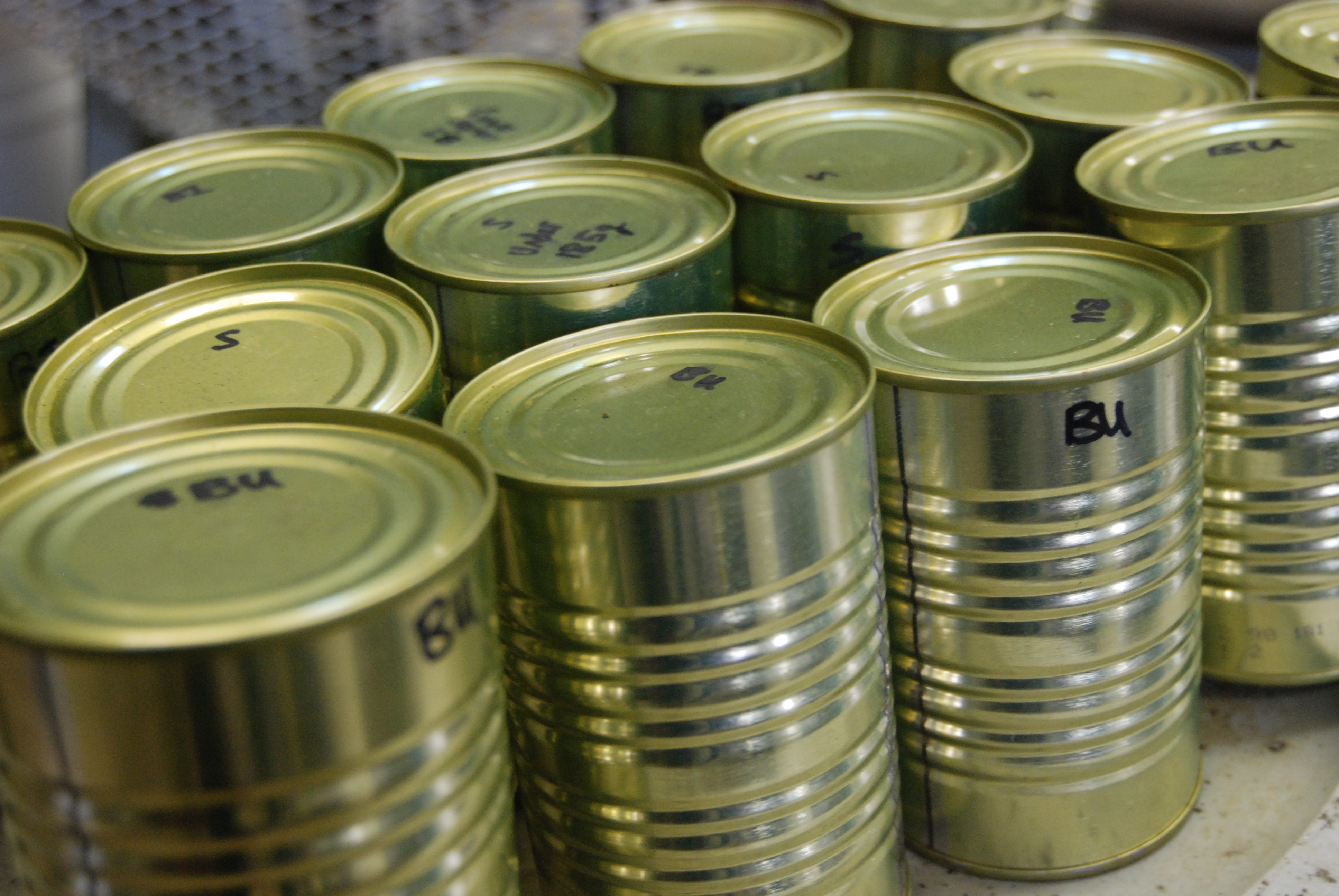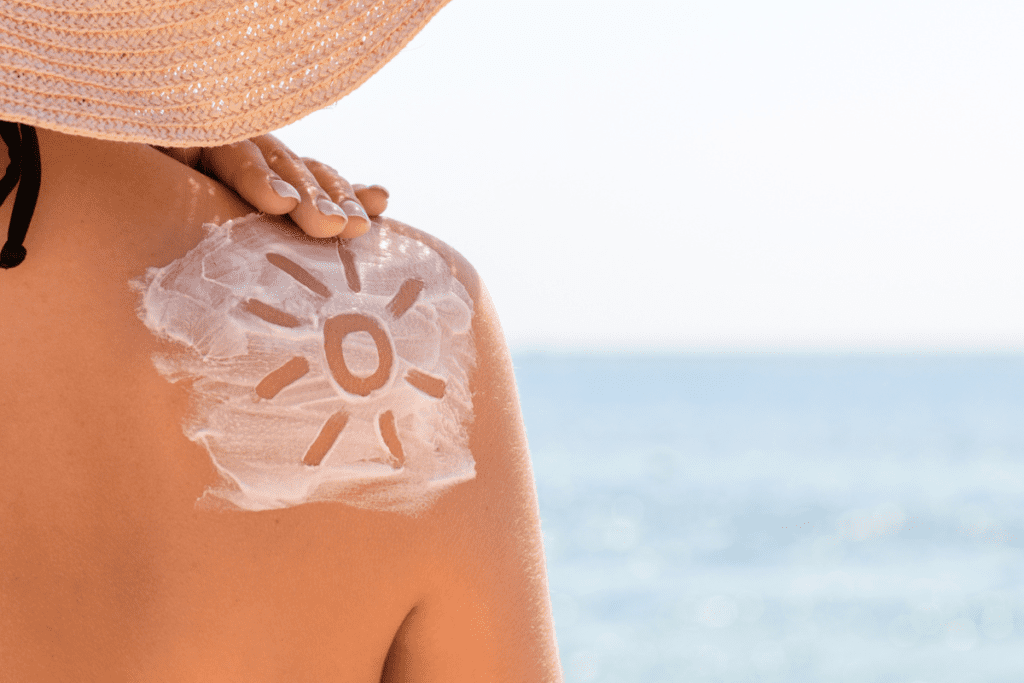Did you know that when you use a can of your favourite beans in your dinner you may be exposing yourself to a toxic chemical? And that this chemical has been banned in plastic baby bottles because of its links to endocrine disruption and cancer? This chemical is bisphenol A (or BPA).
Our new report on BPA in food cans shows that this problem is quite alarming and more concerning than we thought. We collaborated with five groups in the United States (the US Breast Cancer Fund; Campaign for Healthier Solutions; Clean Production Action; Ecology Centre; and Safer Chemicals, Healthy Families’ Mind the Store Campaign) to test 192 food cans that we collected from major retailers in North America. Not surprisingly, we found that 129 cans or 67 per cent of the food cans we tested contained BPA.
BPA is used to make an epoxy-resin lining that forms a protective barrier between the metal can and the food contents. To better understand what’s currently being used popular food cans found on the Canadian market, we purchased 21 food cans from the three largest grocery retailers in Canada: Loblaws, Sobeys, and Walmart.
The cans included vegetables like cut green beans and corn niblets, chick peas, chicken broth, coconut milk, cranberry sauce, and pumpkin puree. We chose popular brands including: Del Monte, Campbell’s, Green Giant, President’s Choice, Compliments, and Great Value.
Here is what we found:
- 17 of the 21 cans we tested contained BPA in the inner lining.
- All three Canadian retailers included in this study sold food cans with BPA, including in their private labels (President’s Choice, No Name, Great Value, Compliments and Signal).
- All of Campbell’s food cans tested contained BPA.
- Broth and gravy cans were the most likely (100 per cent of tested cans overall) to contain BPA.
- Corn and peas cans were the least likely (41 per cent of tested cans overall) to contain BPA.
- Many companies are replacing BPA-based resin with problematic types including polyvinyl chloride (or PVC which is a known carcinogen), polystyrene (a possible human carcinogen) and polyesters resins – all related to plastics.
Why should you be concerned?
BPA is a harmful chemical that has been declared toxic by the Canadian federal government in 2010. A vast amount of scientific research links BPA exposure, even at very low levels (parts per billion), to increased risk of: Breast and prostate cancers, infertility, early puberty in females, type-2 diabetes, obesity, asthma, and impaired neurological development in children. Recent government data in Canada from the Canadian Health Measures Survey (CHMS) show a link between levels of BPA in urine and hyperactivity and low prosocial behaviour, like sharing and helping, in children aged 6-17.
According to the CHMS, 95 per cent of Canadians between the ages of three and 79 have BPA in their bodies. Recent scientific data supported by international agencies such as the French Agency for Food, Environmental and Occupational Health & Safety show that dietary sources are responsible for the majority of our bodily BPA, and food cans account for around 50 per cent of our dietary exposure. Families and children of lesser economic means may rely more on canned foods and become disproportionately exposed to BPA.
No clear timeline on phasing out BPA in Canada
Presently, none of the Canadian retailers we surveyed for the report provided details on plans to phase out BPA from their private label food cans (President’s Choice, No Name, Great Value, Compliments and S!gnal), all of which were found to contain BPA in our study. After the survey period, one retailer, Loblaws, responded to provide a statement on BPA, and indicated that it has been looking at alternatives but has focused efforts on phasing out BPA from the packaging of products for children, and has not yet set a timeline or committed to a full phase-out of BPA in their products. That Loblaws is looking at alternatives is a step in the right direction, and we hope to see the company develop concrete plans for removing BPA from food packaging.
The regulatory picture remains imperfect: BPA was banned in baby bottles and sippy cups in 2010, but continues to be allowed in food packaging and plastic containers. In 2012, Health Canada concluded that dietary exposure to BPA through food packaging was not expected to pose a health risk to Canadians. However, this assessment relied on testing methods that do not match what’s recommended by the French Agency or conform to other published results.
A recent evaluation by the European Food Safety Authority (EFSA) of BPA reduced the Tolerable Daily Intake of BPA drastically from 0.05 to 0.004 mg/kg of body weight, citing recent evidence of risk and new methodologies. The French government banned BPA in all food contact materials – packaging materials that are in direct contact with food contents, and the European Union is moving towards restricting the use of BPA in food contact materials such as coated metal cans and plastic containers to reduce Europeans’ exposure to BPA.
Time for safer chemistry in our food
We urge retailers to commit to publicly-facing policies and timelines to phase out BPA in food cans, and to work with suppliers in assessing alternatives using tools such as the GreenScreen® for Safer Chemicals to find safer substitutes for BPA. Our report has prompted two of the largest food can brands, Campbell’s and Del Monte, to announce plans to phase out BPA in their cans. It is doable! Safer substitutes such as oleoresin are now available and are being used in some of the cans we tested. Companies should also disclose on the product label which type of resin they use. Some brands are already leading the way by eliminating BPA and choosing glass jars or labelling their products as BPA-free.
We also urge the federal government to reassess the risks associated with BPA exposure from canned foods in light of new science and methodologies, and to commit to phasing-out BPA from all food contact materials to protect the health of Canadians.
Get involved in our efforts to ban BPA in food cans by signing this petition and sharing on social media, and download our handy pocket guide on BPA to help you in your grocery shopping needs.







